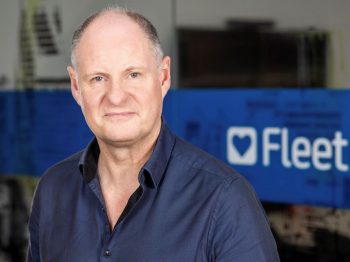Transitioning to EVs and how salary sacrifice can help
The shift to electric vehicles is something all fleets will be embracing sooner or later. Some might be sceptical or hesitant, but many still might not realise about the salary sacrifice option, which has been designed to make the move easier for all parties. By John Challen.

More and more fleets are investigating the possibilities of salary sacrifice
The salary sacrifice initiative is not new, however the past few years have thrust it into the limelight as drivers look to switch over to electric vehicles before the 2030 deadline. Add in rising fuel costs and more and more people are investigating the possibilities.
Right now, there are numerous routes to go down – with a number of products offered by a wide range of industry specialists. The evidence is clear: the big switch to electric vehicles is snowballing. With that in mind, here are a selection of what the different players are offering drivers.
IMPROVEMENTS ALL OVER
“We’re seeing a demand landslide for EVs in the UK,” says Fiona Howarth, CEO, Octopus Electric Vehicles. “In 2021, 12% of new cars sold were EVs, almost double the rate in the previous year. Drivers are waking up to the benefits of switching to electric – many of the old myths and barriers for adoption have gone.”
Howarth isn’t surprised by the trend. “Drivers can now choose from over 50 different EVs that travel over 150 miles on a single charge, which is plenty when we do just 20 miles a day on average.

Fiona Haworth, CEO Octopus Electric Vehicles
“Public chargers have rolled out at pace. Their numbers have doubled in the UK in the last two years and there are now twice as many locations as petrol stations. It’s also more affordable – the average driver can save £1,000 a year on fuel costs if they use an off-peak electricity tariff such as ‘Octopus Go’ to charge at home.”
The Octopus CEO also cites platforms such as the Electric Juice Network as helping to make public charging hassle-free for both drivers and fleet managers. “One card allows access to over 189,000 charge points across Europe, with more being added daily, consolidating all fees onto a single bill,” she explains.
“Salary sacrifice schemes allow drivers to typically save 30-40% of their monthly car costs, while they drive a brand new EV. Our offering allows employees the option of a home charger, maintenance and insurance cover, as well as a dedicated team to help them pick their dream car,” says Howarth.
SALARY SACRIFICE SEARCHES
As a relatively new player in the market, The Electric Car Scheme believes it has the ability to come at salary sacrifice from a fresh perspective. The company has seen searches for employee benefits linked to electric cars increased five-fold over the last 12 months,” according to Thom Groot, co-founder. The Electric Car Scheme has now fielded over 65,000 requests for cars since starting its beta and is now open to all UK companies.
“The service is designed specifically to be a ‘no-brainer’ for companies from 10 to 500 employees,” he explains. “Benefits include the risk of an employee not being able to continue with their car being completely covered – and expert HR and finance support being easily accessed through a dedicated account manager. We also support the company’s employees, helping to select and order the best car lease for them, saving anywhere between 30-60% on the cost of leasing a new electric car.”
IMPROVING GREEN CREDENTIALS
As well as obvious financial benefits, there is the important ‘green’ element to the salary sacrifice schemes, something that isn’t lost on Neal Francis, divisional managing director, Pendragon Vehicle Management. “For employers, the schemes represent an opportunity to take a step forward in terms of talent acquisition, employee satisfaction, improving green credentials and meeting sustainability goals,” he says.
“By encouraging employees to opt for low emission, hybrid or fully electric vehicles, drivers are only charged the benefit-in-kind on the vehicle, providing savings for the amount of salary sacrificed. For fully electrified vehicles, the BiK rate is only 1% for the 2021/22 financial year. The rate will rise to just 2% in 2022-23. This is a tax advantage that makes salary sacrifice an effective perk for drivers wanting to switch to an electric vehicle.”
The NIC rise in April this year will also give an additional boost to salary sacrifice schemes,” reckons Francis. “Employers will save on NI payments on salaries alongside a lower charge on the BiK element, while employees will save more on NIC.
“Administering a vehicle salary sacrifice scheme can be viewed by employers as challenging or non-core, however when working closely in partnership with the in-house experts at Pendragon Vehicle Management, these items can be addressed early on in the process and together schemes can be effectively and efficiently implemented.”
BELIEVE THE HYPE

Fleet Evolution founder and managing director Andrew Leech
“Salary sacrifice schemes are the ideal way of getting company employees into electric cars ahead of the ban on the sale of new ICE cars in just eight years’ time,” says Andrew Leech, founder and managing director of Fleet Evolution. He believes there are several myths surrounding salary sacrifice schemes that can be immediately dispelled.
“The first is size. Our smallest client has just three employees. Our scheme is suitable to businesses of all sizes, large or small, and delivers all the benefits associated with running a company car at low cost and minimum risk.”
Another myth is that salary sacrifice schemes are high risk to employers. “There is a notion that employers could be left with cars if their employee leaves, is made redundant, or can’t make the repayments,” explains Leech.
“Many schemes offer insurance against all of these eventualities, but they normally take six months to kick in. Under our scheme, the employer only has to give one month’s notice before we will take the car back with no questions asked.”
Myth number three relates to schemes being difficult to operate and administration heavy. “Nothing could be further from the truth,” states Leech. “We handle all administration – everything from fines to employee recharges. In fact, our largest client, Unipres with whom we have 70 cars, spends just 45 minutes a month of admin connected with their scheme as we take all of that burden away.”
GOING THE EXTRA MILE
Salary sacrifice is growing in popularity, not surprisingly, as it is an ideal way to provide employees who would not normally qualify for a company car – or those who have opted out in favour of a cash allowance – with cost-effective access to fully maintained, zero-emission vehicles at no extra cost to the business.
Fleet Alliance says it can build on the savings and benefits that salary sacrifice offers with a panel of up to nine funders. As a result, maximum value is delivered to employer and employee by selecting the lowest cost.

Andy Bruce Fleet Alliance CEO
“This facility is available to all – but we are finding it is proving highly popular with small and medium sized businesses who would not normally be able to benefit from a solution of this nature,” says Andy Bruce, CEO, Fleet Alliance.
“We are also providing access to e-Fleet – our cloud-based fleet management system – free of charge to salary sacrifice customers to help them manage their fleet administration more efficiently,” he adds.
“Under our scheme, an employee effectively leases the car for two to four years with no deposit and all costs – including maintenance, insurance and breakdown cover – are included within the employee’s monthly salary sacrifice payment.”
HOPE FOR THE FUTURE
The one remaining barrier to widespread EV adoption can be the initial purchase price, which is higher than the equivalent petrol or diesel car. “While the lower total cost of ownership for EVs can help narrow this gap with internal combustion vehicles, it is the incredible tax efficiency of EVs that has helped the widespread adoption of EVs by business drivers,” reasons Paul Gilshan, CEO, Tusker. “Low BiK rates coupled with the wider acceptance of Salary Sacrifice schemes have allowed motorists to benefit from savings which can run into the thousands over the lifetime of a car’s contract.
“Tusker is delighted that the benefits of salary sacrifice can be just as beneficial for lower rate taxpayers as they are for company car drivers,” adds Gilshan. “This situation allows more employees to access the benefits of new, safer and greener vehicles that they otherwise wouldn’t have been eligible for, nor able to afford.”
With the ban on petrol and diesel cars coming into force in just eight years, Gilshan says he is is confident that the EV landscape will change dramatically within this time. “With all global manufactures currently engaged in the production of EVs, the range of available vehicles will be wider each year, which has got to be a big positive for drivers,” he concludes.
INDUSTRY INSIGHT:

Paul Gilshan, Tusker’s CEO
Paul Gilshan, CEO, Tusker
With a current fleet of over 20,000 cars, 95% of which are on salary sacrifice, Tusker has been providing this employee benefit to a growing customer base for more than 14 years. During that time, we’ve put over 60,000 vehicles on the road. We have over 900 salary sacrifice customers including NHS Trusts, councils, and many large and small corporate businesses including British Airways, EDF and AstraZeneca.
Salary sacrifice supports the recruitment and retention of staff, which in the current market is so important for businesses. With increased competition in the workplace for employees, companies providing a salary sacrifice scheme can retain staff but also attract new talent because of the power of the salary sacrifice offering.
Our research shows that the majority of our drivers would not have opted for a new car without the scheme, and with the average age of the car our drivers’ move from being over eight years’ old, we are helping drivers access newer, safer, more economical and more environmentally friendly vehicles.
This also helps companies address grey fleet issues as it reduces the number of drivers driving their own car on company business.
The strategy for Salary Sacrifice, which includes the reduced BiK rates currently available for electric vehicles, means those on lower salaries can access EVs for the first time. It also allows Tusker to provide this benefit to those not offered a traditional company car where a higher salary or job role is a pre-requisite to a vehicle.
As a result of the way the scheme is set up, well over 70% of Tusker’s fleet are 20% taxpayers ensuring that this audience who haven’t been catered for with company car benefits previously, now have access to affordable electric vehicles.
We have seen more ‘cash for car’ drivers taking advantage of salary sacrifice, because it offers them a fixed price, all-inclusive car, enabling them to get into a new Electric Vehicle more cost effectively than if they were to buy or lease the vehicle as a retail driver.
Vetting your salary sacrifice supplier before appointing them is vital. Providers like Tusker, with over 22 years’ experience, have large numbers of customers and specific processes in place to support drivers and organisations offering salary sacrifice. Choosing a provider who has experience and salary sacrifice as a core focus is going to make the difference compared to those offering salary sacrifice as an additional product, or for those new to the market.












